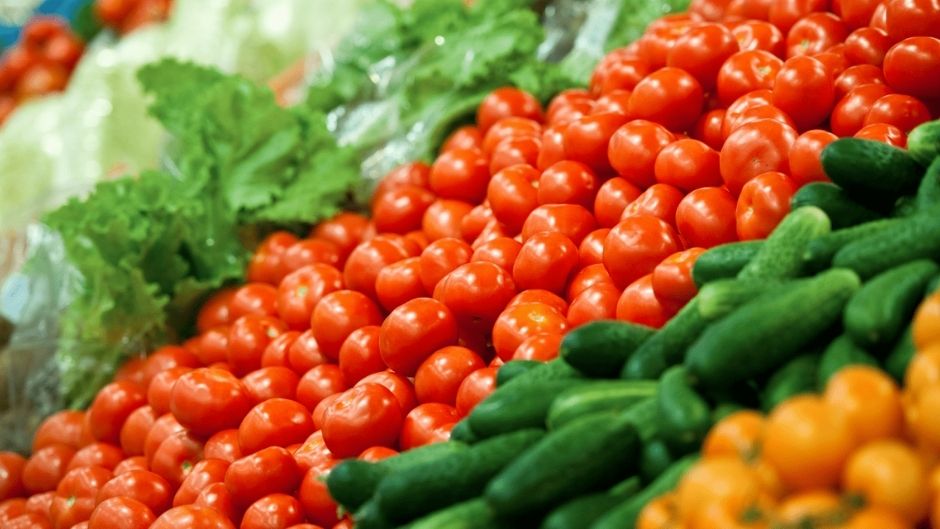Author Name: StartRight
The term “organic” indicates the process by which the agricultural products are grown and processed, without the use of synthetic pesticides, petroleum-based fertilizers, sewage sludge-based fertilizers and bioengineered genes (GMOs) etc.
The difference between organic products and inorganic or locally grown plant-based food are as follows:
| Organic Plant-based food | Inorganic or conventionally grown plant-based products |
| These are produced with the use of natural fertilizers like manure, compost etc. | Synthetic or chemical fertilizers are used |
| Weeds are controlled naturally with techniques like crop rotation, hand weeding, mulching and tilling. | Weeds are controlled with chemical herbicides. |
| Pest control is also done with natural techniques / methods like birds, insects etc. | Pest control is done with synthetic pesticides. |
What’s wrong with conventionally grown plant-based foods?
In conventionally grown plant-based foods, the level of pesticides is found to be very high. Therefore, most of the population has high exposure to pesticides due to prolonged consumption of conventionally grown plant-based foods. This can lead to many health issues like birth defects, low immunity, headaches, etc. It has been proven that prolonged exposure to such chemicals can lead to various forms of cancers like leukemia, lymphoma, breast cancer, prostate cancer, brain tumors etc.
Children and fetuses are most vulnerable to pesticide exposure. Pesticides affect the immune system andbrain development in the fetus. It may also cause developmental delays, behavioral disorders, autism and motor dysfunction in children.
Pregnant women too are vulnerable to pesticide exposure. The chemicals in the pesticidescan pass from the mother to the fetus in the womband also through breast milk.
Washing and peeling to fruits and vegetables cannot help:
Washing or rinsing can reduce but cannot eliminate pesticides. Peeling may help at times, but it is also found that sometimes the essential nutrients are lost with peeling. So, the best approach is to consume a variety of plant-based food by washing and scrubbing them thoroughly and buying organic products whenever possible.
The benefits of organic plant-based food:
The way your food is grown or produced has a great impact on your health and the environment that you live in. Organic foods are richer in nutrients (like antioxidants) than the conventionally grown foods. Organic foods help to prevent the allergies related to foods, chemicals or preservatives.
1.Organic food has no pesticide: In conventionally grown plant-based foods, chemicals like insecticides, herbicides and fungicides are used. The residues are usually present in the food we eat.
2. Organic food is fresh: Organic foods does not contain preservatives so often, it is fresh and sold near to the area where it is produced.
3. Organic farms are environment friendly: Organic farming helps toreduce pollution, conserve water, reduce soil erosion, increase soil fertility etc. Farming that does not use pesticides is good for nearby birds, animals as well as people who live close to such farms.
4. Organic food is GMO-free: Organic plant-based foods are natural. In certain conventionally grown crops, with the help of GMOs (Genetically Modified Organisms) or genetically engineered products, the plant’s DNA is altered in many ways to be resistant to pesticides etc. But in organic plant-based foods no such techniques are used. etc. But in organic plant-based foods no such techniques are used.
5. More nutrients: Organic plant-based foods are more nutritious than conventionally grown foods.
6. Full of antioxidants and vitamins: Organic foods are rich in antioxidants (up to 69% higher than conventional foods). It is evident that organic foods are also rich in micronutrients like vitamin C, zinc and iron. Organic berries and corn contains 58% more antioxidants and 52% increase amount of vitamin C. Organic plants do not have any chemicals or pesticides to protect themselves, so more amount of antioxidant is produced by them, which acts like a protective compound for the plants.
7. Low nitrate levels:Organically grown plants have low nitrogen levels. In fact,nitrogen percentage is 30% lower than conventionally grown plant foods. High nitrate levels may cause various types of cancers. Increased nitrate levels can also lead to methemoglobinemia (a disease in infants where the body’s ability to carry oxygen is affected).
Fruits and Vegetables which you should buy after checking the organic level are:
Apples, Peaches, Cucumbers, Celery, Potatoes, Grapes, Strawberries, Cherry tomatoes, Kale
Collards, Hot peppers, Sweet Bell peppers, Spinach etc.
Organic plant-based food contains moreantioxidants and nutrients than regular plant-based food. Consumption of organic foods also helps to prevent the risk of exposure to harmful chemicals, hormones and antibiotic-resistant bacteria. However, organic foods are expensive and can spoil easily. Choose organic plant-based food to stay healthy.
Reference:
1. Lawrence Robinson, Jeanne Segal, Ph.D., and Robert Segal, M.A. Last updated: October 2017. Trusted guide to mental & emotional health.
https://www.helpguide.org/articles/healthy-eating/organic-foods.htm. Accessed on 3rd Nov’17.
2.Barański M et al. Higher antioxidant and lower cadmium concentrations and lower incidence of pesticide residues in organically grown crops: a systematic literature review and meta-analyses. Br J Nutr. 2014 Sep 14;112(5):794-811.
https://www.ncbi.nlm.nih.gov/pubmed/24968103
3. Asami DK1, Hong YJ, Barrett DM, Mitchell AE. Comparison of the total phenolic and ascorbic acid content of freeze-dried and air-dried marionberry, strawberry, and corn grown using conventional, organic, and sustainable agricultural practices. J Agric Food Chem. 2003 Feb 26;51(5):1237-41
https://www.ncbi.nlm.nih.gov/pubmed/12590461
4. Hunter D et al. Evaluation of the micronutrient composition of plant foods produced by organic and conventional agricultural methods.Crit Rev Food Sci Nutr. 2011 Jul;51(6):571-82
https://www.ncbi.nlm.nih.gov/pubmed/21929333
6.K. Brandt,C. Leifert,R. Sanderson &C. J. Seal. Agroecosystem Management and Nutritional Quality of Plant Foods: The Case of Organic Fruits and Vegetables.Pages 177-197. Published online: 29 Apr 2011
http://www.tandfonline.com/doi/abs/10.1080/07352689.2011.554417
7.Williams CM. Nutritional quality of organic food: shades of grey or shades of green. Proc Nutr Soc. 2002 Feb;61(1):19-24.
https://www.ncbi.nlm.nih.gov/pubmed/12002790








































